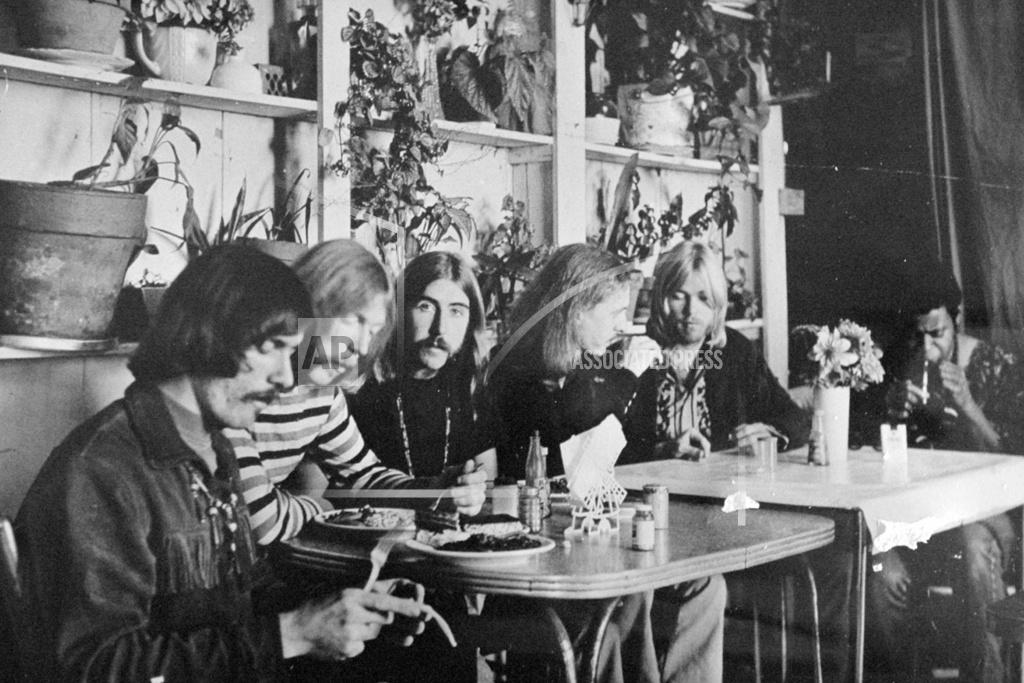Dickey Betts: Remembering not just a legend, but an era

The Macon Telegraph via AP, File
“I kind of knicked my finger on something backstage, but I’m going to try to play the guitar for you all anyways.”
Cantankerous to the very end, Dickey Betts told this to a small crowd in a modest New York City auditorium that included me (an immodest 14-year-old Jack Simon) and my old man.
Betts didn’t say this with false humility or false bravado; he said it like he was doing us all a favor by deciding to play for us that night. Surrounded by what was left of his Great Southern band, I had no idea what I was witnessing or what I was hearing, and to be fully transparent, I don’t remember anything about the show. It was just cool to be with my dad listening live to the music he raised me on.
I’m an adult now, one who has become a fountain of useless pop culture knowledge.
With this cacophony of musical knowledge, I now understand what Betts represented for music and am mourning deeply his passing. It is always a shame when death has to remind us of importance, and in this case, we remember Dickey Betts as a startlingly important figure in what I consider to be the greatest era of modern music history.
I don’t say this within the silly adage, “They just don’t make it like they used to!” If I ever do that, I implore you to euthanize me.
Art, every species of it, has its boom and bust periods. I just think that the Woodstock era starting with the Beatles’ formation in 1962 and petering out in the mid-’70s is the greatest relevant boom. Period.
Music then became such a disgustingly barren wasteland afterward that Aerosmith became popular and was dominated by punk bands who were rebelling against the whole ugly stale thing through the ’80s. Subsequently, this morphed into the grunge movement, which is responsible for some truly awful bands. Nobody was able to be as good as their rock ancestors, band members blended in with one another like surrealist painting. Devoid of talent, irreverence was the only option.
Rap’s surge in the late ’90s was the spark that became an inferno roar, where in the mid-’00s, The Neptunes recrafted pop music and were such undeniable auteurs everything leaned toward them. Mid ’00s became mid-’10s and outshook the many branches of a Golden Era that had enough roots to support such wide-ranging, genre-bending, bonkers, cool artists from Young Thug and Future to Kendrick Lamar and Killer Mike. It was a 20-year auditorial paradise, and now in the 2020s, things are on the wane again. People can’t tell who is who, and nobody cares to find out.
The internet thinks that we are doomed to this dystopia future, but that’s what the internet does. That’s what people do. We want to think the present we are stuck with isn’t going to have the nerve to improve for the next generation.
The Woodstock era is irreplicable as it was the moment when the artist was more important than the band. Betts, Gregg, and Dwayne Allman shared a stage, and audiences recognized each for their unique contributions to music rather than just the sum of their parts that was The Allman Brothers Band.
What a unique collision of brilliance The Allman Brothers Band was. Three of the best to ever do at their instruments playing together. What other band can you say that for? The aforementioned Beatles (whom I don’t even really like that much anyway)? The Rolling Stones? Metallica? The Who? The loudest insistence on this list I’m sure I’ll hear is the Grateful Dead, but that was more Jerry Garcia’s all-encompassing knowledge than any other member’s skill. I’m sure somebody will lob Pink Floyd at me, to which I say put the rest of your tabs back in the freezer. If you bring Van Halen into this conversation, I would like to introduce this three wood to your kneecap.
If art is how we live forever, then what Dickey Betts brought out of his pen and from his guitar is eternal. Hits with “Ramblin Man” and “Blue Sky,” his live contributions on 1971 “At Fillmore East” version of “Whipping Post,” which feels like having your soul ripped from your body shredded and shoved back in, and biblical lyrics such as “The closest thing to winning must be losing” and “You see the crossroad sign/One way is the morning light/You got to make up your mind.”
We will have transcendent music again, we will have paramount artists once more, but we will never have another Dickey Betts. It’s impossible.
Jack Simon is a mogul coach and writer/director who enjoys eating food he can’t afford, traveling to places out of his budget, and creating art about skiing, eating, and traveling while broke. Check out his website jacksimonmakes.com to see his Jack’s Jitney travelogue series. You can email him at jackdocsimon@gmail.com for inquiries of any type.
PHOTOS: Aspen Mountain closes out the ski season with Sundeck party
DJ Naka G and DJ Dylan lit up the Sundeck stage on Sunday, leading the annual closing day celebration atop Aspen Mountain.










